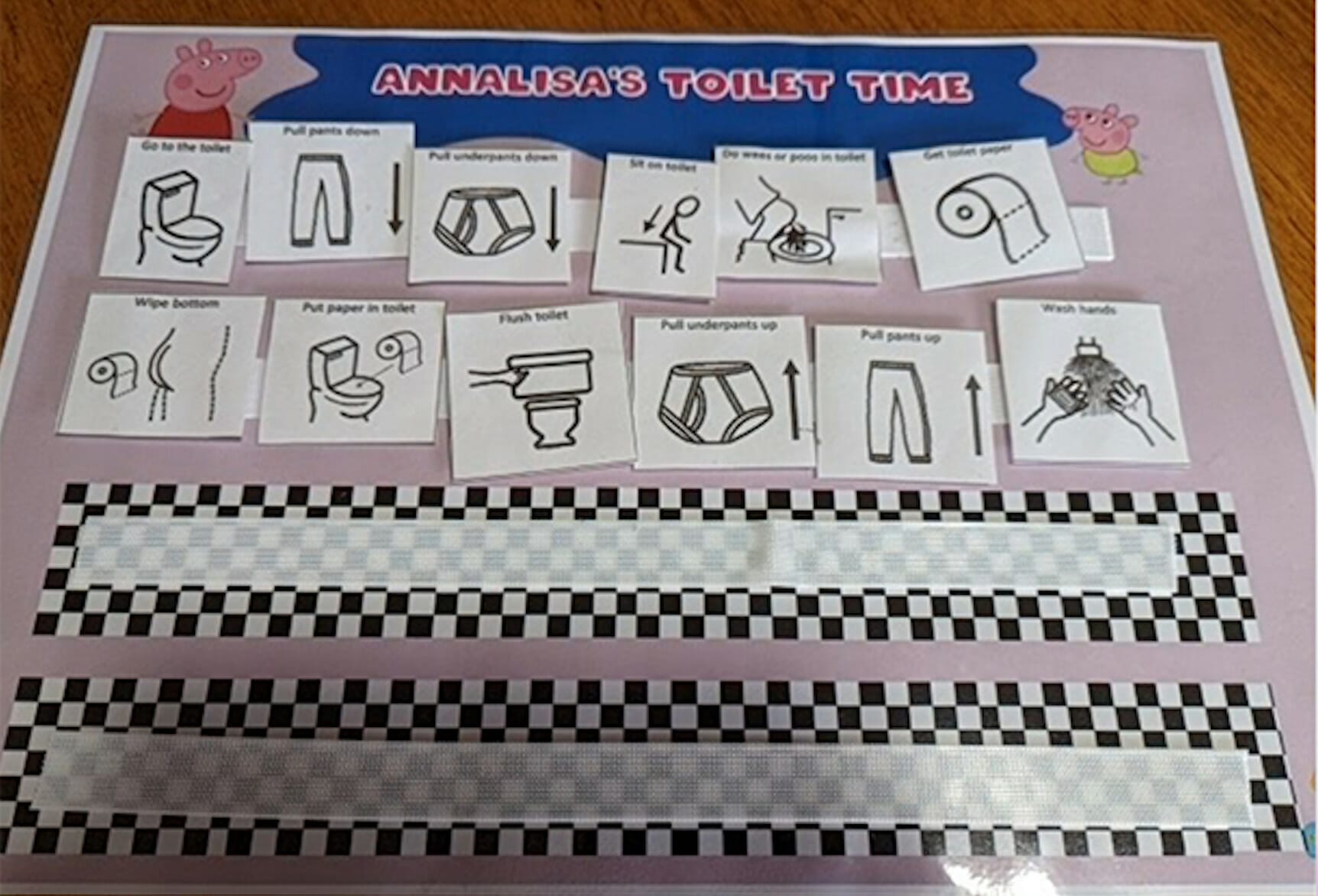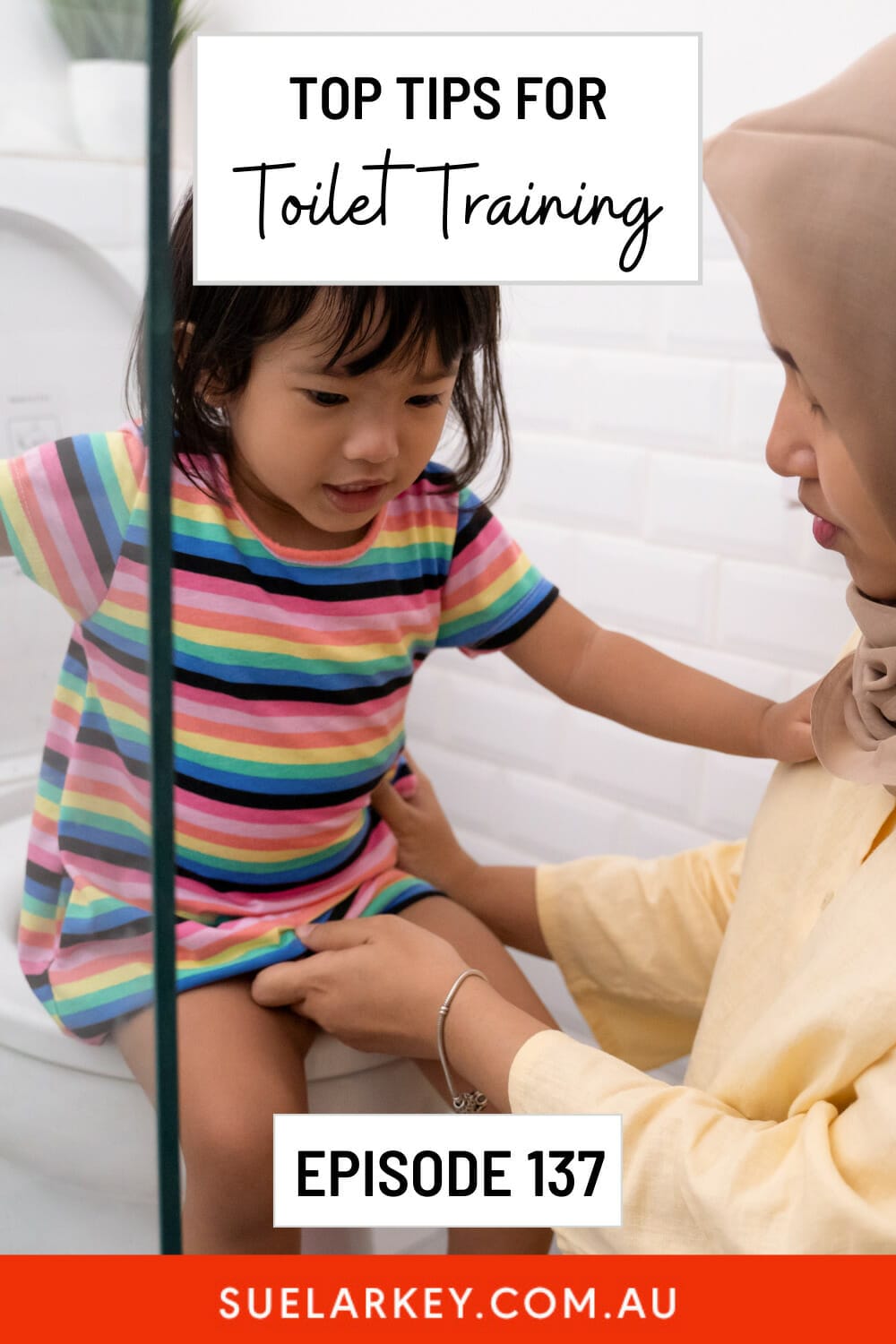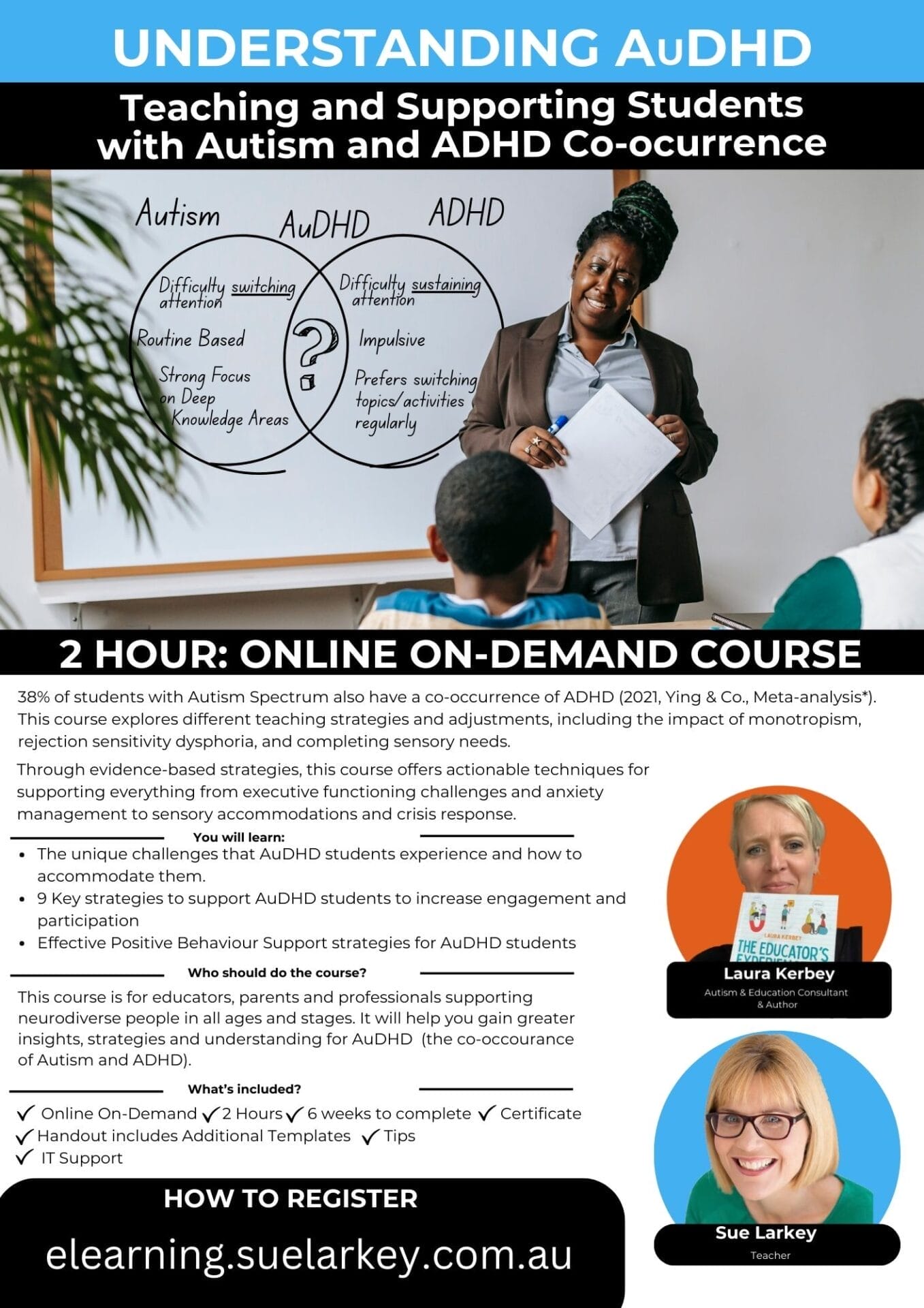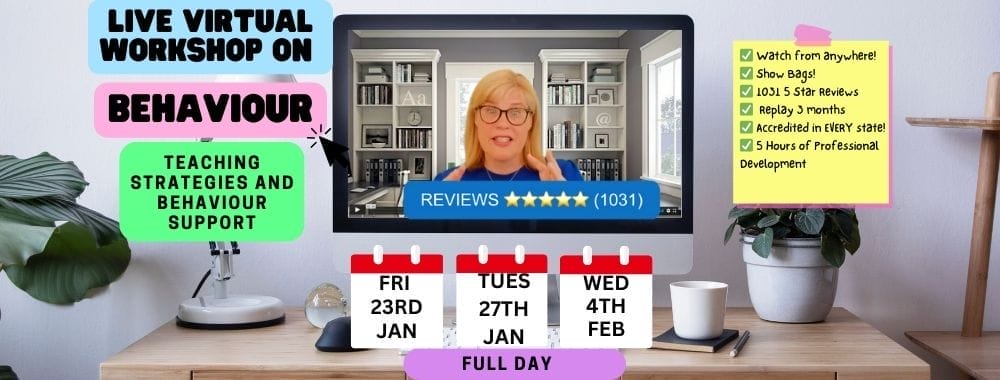Why Toilet Training Neurodiverse children
can be so hard & my Top Tips to Try.
Learn about Toilet Training and Autism Today!

**************************************
Join me for an upcoming Workshop:
Can't make these Workshop dates? Join me for a self-paced on-demand course:
Sue Larkey On-Demand Workshops
**************************************
Toilet Training Neurodiverse children
Discussed in this Episode:
✅ What made the biggest difference (link to my book)
✅ What advice she would give other parents
✅ Why it was so important to get her twins out of nappies
✅ How different the twins were in what worked
✅ Importance of preschool and friends in helping with toileting
Stay informed about Toilet Training and Autism Today!

10 TOp TIps For Toileting
1. Avoid potties! Start out with the end in mind. Children with autism have trouble generalising and the last thing you want is to have to carry their pottie around with you everywhere you go!
2. Visuals are very important. Make up some visuals to help the child understand the toileting process and to provide a prompt.
3. Prepare lots of FUN activities to do with the child. Making going to the toilet fun takes the pressure off and makes it a motivating place to go.
4. Rewards are one of the most important elements of toilet training – children need a motivator as it is just too easy to continue to go in their nappy. Rewards need to be instant and powerful. Reward IMMEDIATELY and reward the same every time.
5. Base yourself in or right next to the toilet for the first few days of toilet training. Have as many home comforts in the room for the child to make it a fun environment.
6. Remove nappies. Once you start toilet training do not let the child put on any form of nappy until they go to bed at night. If you let them wear them during the day at all they will learn to hold on until they are in their nappy
7. Toilet time – put the child on the toilet every 30 minutes for 10 minutes at a time, increasing time as they get the hang of it.
8. Teach the child the whole steps of toileting – including putting on underpants, flushing the toilet and washing hands.
9. Some children may have sensory sensitivities related to toileting. Sensory sensitivities need to be respected and worked on.
10.Create good routines around toilet timing. Have set times when the child must go to the toilet.
SUE Explains her Tips for Toileting Book
Books to Help with Toileting:
Check out my other Podcasts on Toileting:

Episode 42: NIGHTTIME TOILETING/BEDWETTING
Nocturnal enuresis is involuntary urination while asleep. This can be very challenging for kids with autism, and their families and carers. Most kids aren’t able to stay dry through the night until they’re 5 or older because their bladders are too small, they lack muscle control, or they sleep too soundly to sense when their bladders are full. The best thing for you and your family to do would be to try to tackle nighttime toileting. However, I am aware that some of you have tried everything available and had no luck. I have put some bedding strategies below to try and make it slightly more manageable.
Over the years I have found that nighttime toileting and sleep issues are often interconnected, so I have put some strategies for sleep below. PLEASE remember that a combination of strategies is often the best way forward!

Episode 137: Key Strategies for Toilet Training Kids with Autism
Toilet training kids is a big task even for neuro-typical children. Parents often procrastinate over when to start and we keep delaying it for whatever reason we can think of!
My biggest concern for children with ASD is if they are not out of nappies by five years of age then they often start to lose muscle control and can end up with long term bowel and bladder issues. Toileting is not something that the child will grow into or get better with age. We all need to action ASAP – and this includes schools. If a child is attending pre-school or school when the parents are toilet training then everyone needs to get behind the toileting programme and provide consistency all day every day until the child has mastered it.
Episode 88: Dietician Provides Strategies to Reduce Picky Eating for Children with Autism
In this podcast Sue discusses
✅ Dietician Caitlin Arundale explains what food jagging is and why children stop eating food they previously loved
✅ How to reduce anxiety around food
✅ How do people decide if they need food therapy for their child
✅ What the SOS program is and how to implement it into your household
✅ Top Tips to reduce picky eating
✅ Whether you should allow chidlren to spit food out
✅ Will children grow out of picky eating or do they need intervention strategies

UNDERSTANDING AuDHD: Teaching & Supporting Students with Autism and ADHD Co-occurrence
✅ 2 Hours, 8 Lessons
✅ 6 Weeks to Complete 🎁 Bonus 6 Months Access (available until 28 Oct 25)
✅ Certificate of Completion
✅ Lesson Transcripts
 2 Hours
2 Hours

$149

 2 Hours
2 Hours


 Sorry we no longer ship items outside Australia. Please consider the digital versions of Sue’s Books –
Sorry we no longer ship items outside Australia. Please consider the digital versions of Sue’s Books – 